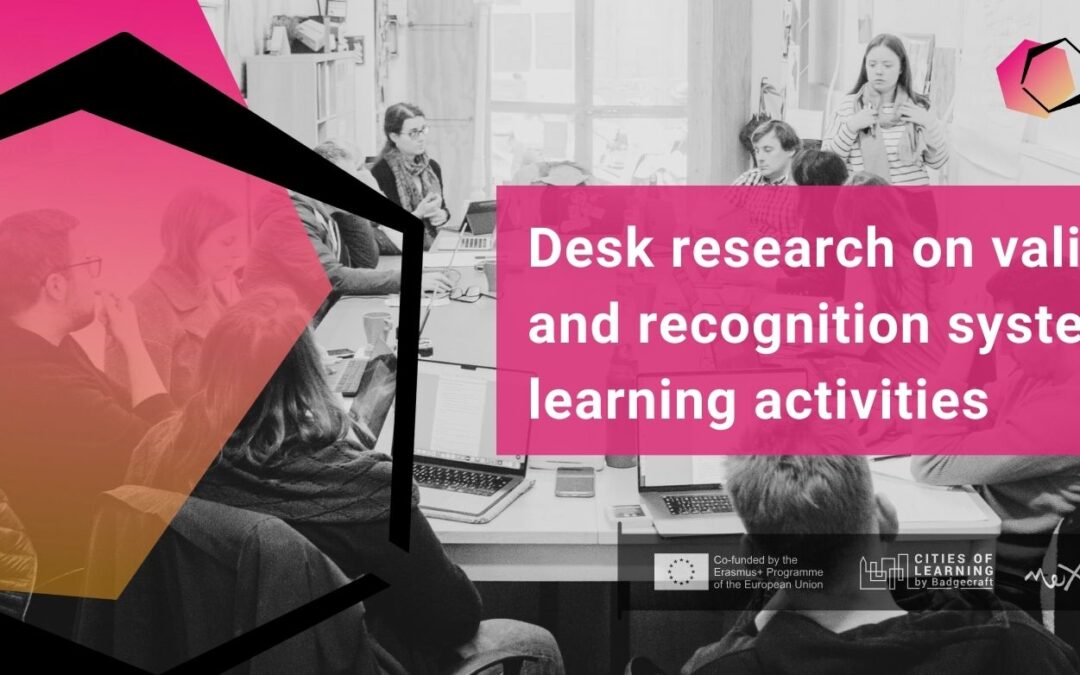How is the actual panorama of validation and recognition systems of learning activities in Europe? Between May and December of 2023, the partners of the project “Quality Label for Badge Recognition” mapped the different frameworks, policies, and processes implemented in Italy, Lithuania, Netherlands, Serbia, Slovenia and Spain, within and beyond non-formal learning and youth work contexts.
During the desk research they were able to collect information that reconfirmed how diverse are validation and recognition systems of learning activities. Each country faces a different reality, considering both the different contexts in which learning takes place (non-formal education, youth work, volunteering…) and also the different levels of action (national, regional and/or local).
The youth work context we dealt with is complex. In Italy and Serbia it’s still in the process of definition while in the Netherlands, Lithuania and Spain the framework is pretty much established. Related to the context of non-formal learning for countries like Slovenia or Spain, the structure/system leans towards a decentralised approach, with various institutions and organisations playing their part in recognizing and validating non-formal education. From Lithuania there is strong support from the Vilnius municipality to embed the Vilnius City of Learning platform and recognition system in the non-formal education field. In Italy and the Netherlands we reached the conclusion that there isn’t a specific system yet to validate the non-formal learning activities.
Mapping and analysing the current national validation and recognition systems and solutions for learning activities and outcomes was very enriching. In Slovenia multiple platforms and systems were indicated, Portal for evaluation and recognition of informal knowledge (VPNZ), Nefix, IM-PROVE among them. In the Netherlands, they found themselves in a transitional phase, moving away from a system that isn’t effective anymore and toward the development of a new, yet-to-be-tested system. During this process, the Dutch Cities of Learning are cautious about labelling any specific practices as “effective” since they are actively exploring and defining a new system that aligns better with needs and goals. In Lithuania, Vilnius City of Learning platform, the certification system of the Youth Affair Agency and “Volunteer in Vilnius” platform were analysed as good practices. In Spain, the platforms Reconoce, Insignias INTEF, ULibraryLab were identified as good practices. In Italy, three main good practices were identified: the Bestr system, the validation and certification of professional competencies (based on the EU recommendation of 2012) and the Chambers of Commerce platform for students’ competency validation.
Since there isn’t a national policy in the different countries where this research was carried out, the institutions and organisations are developing different systems of recognizing and validating learning activities and their outcomes, by establishing their own criterias.
The desk research establishes itself as a starting point in the analysis of good practices on validation and recognition of learning activities pointing out the good practices identified in different contexts (non formal education, youth work, volunteering…) and in different levels (local and national). With this information the partners proceeded to the next phase of the project focused on the analysis of a selection of these systems that could guide them to establish recommendations for a quality standard for Open Badges issuers seeking better quality and wider recognition within and beyond non-formal learning and youth work fields.
Partner meeting note:
Partner organisations of the project Quality Label for Badge Recognition met in Ljubljana in February (12-15.02.2024) in order to:
- proceed further with European Open Badges recognition strategy development
- share the visions and agree on standards to develop the Quality Label for badge issuers
- and monitor the overall project development, activities, and achievement of each partner
The next important step in preparing of the training course in Serbia, which will take place between 20-25 of May, and where we will develop further and test the Quality Label.
The added value of the encounter was a meeting between the head of the Youth department of Ljubljana City and of Vilnius City.
Partners: Breakthrough, Nur, Tipovej, Nectarus, Nexes, Bins
Disclaimer: The European Commission’s support for the production of this publication does not constitute an endorsement of the contents, which reflect the views only of the authors, and the Commission cannot be held responsible for any use which may be made of the information contained therein.

